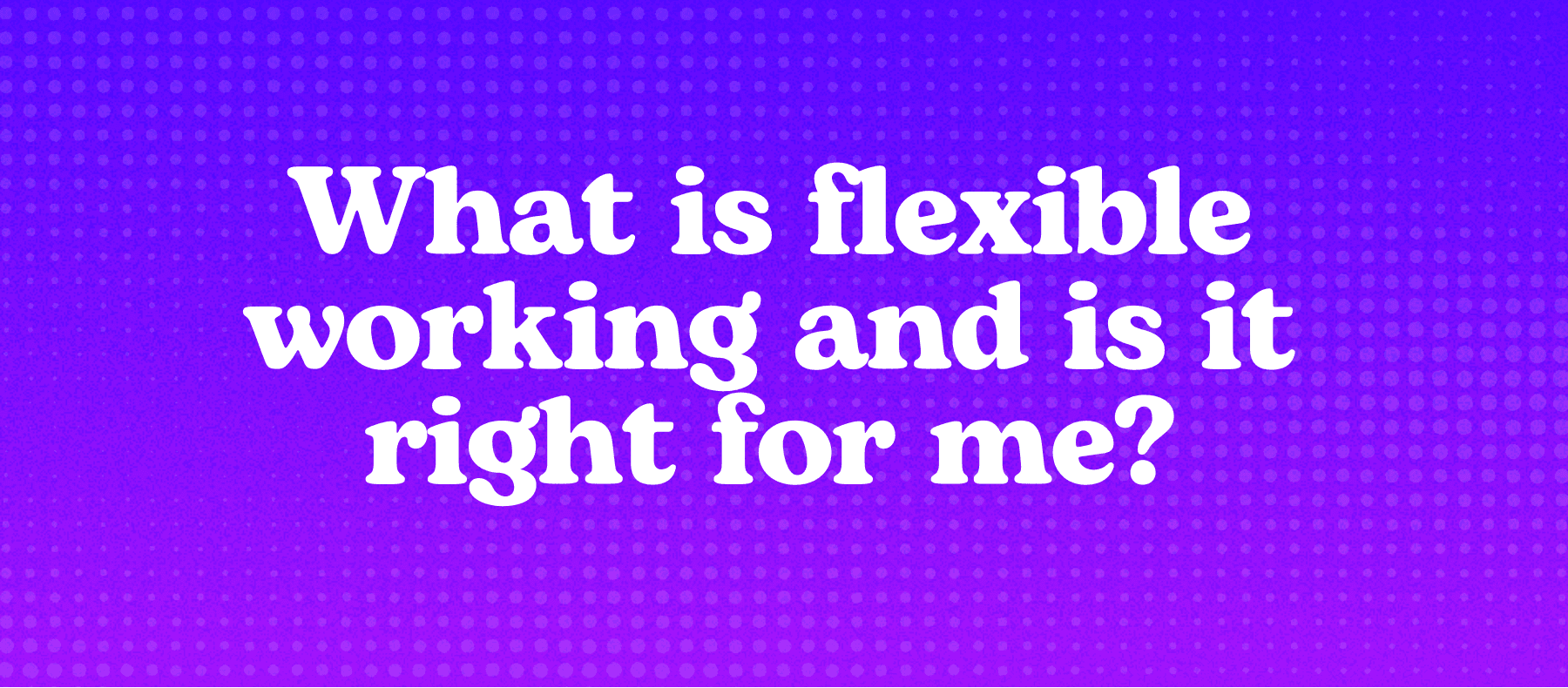What is flexible working and is it right for me?
Most of us have heard the term 'flexible working', but what does it actually mean? In this blog, we'll break down the benefits of flexible working and how to figure out if it's for you.
7th May 2024

What actually is flexible working?
There are so many different definitions of flexible working. In the UK, the government describes it as “a way of working that suits an employee’s needs, for example having flexible start and finish times, or working from home” and we think that this definition sums it up pretty well, but it makes it seem that only people who have specific needs can work flexibly.
Here at Flexa, we think that flexible working can be for everyone.
So we spent a while trying to come up with an easy to understand, all-encompassing definition of what we think flexible work is, in relation to the trends that we see in the world of work in the UK.
Our definition of flexible work is: any full-time role which does not require you to be in the office every day, but allows you to work from home (or another location) for at least one day per week or work flexible hours.
(Although part-time, freelance, and remote jobs are also flexible, they are flexible by nature, rather than by design so we haven't chosen to focus on them here.)
Why has flexible working grown so quickly in recent years?
According to our latest flexible working index 62% more flexible jobs are currently being advertised in March 2024 compared to this time last year.
The traditional office job has historically been pretty rigid – coming in around 8 or 9, and leaving at 5 or 6 (and many industries work far longer hours than that!). However, there has been a realisation over the past few years that this really doesn’t work for everyone. Our mental health has suffered, gender equality still isn't where it should be, we're stressed and tired, and spending more and more time commuting.
We have seen an increasing number of companies shift towards a more adaptable way of working full-time role, by offering flexible locations and flexible hours to everybody. By offering people more flexibility in the way that they work, we spend less time on stressful commutes and can fit in other commitments around our work that make us happier, more balanced, and more productive employees. The benefits of flexible working are having a huge positive impact on the workforce.
We're definitely not saying that flexible working is for everyone, or suitable for every job (some jobs require physical presence every day). Some people love the routine, structure, and social environment that coming into the office every day provides, and we think that's great - everyone should be able to work in the way that works for them. It's all about having the choice to work how and where we want.
Benefits of flexible working
Flexible working offers a range of potential benefits for both employees and employers.
💰 Cost savings: Remote working can help organisations reduce overhead costs associated with office space, utilities, and supplies.
🌍 Access to a wider talent pool: By offering flexible working options, companies can attract and retain top talent from anywhere in the world.
⏰ Improved work-life balance: Flexible working allows employees to better manage their personal and professional responsibilities, leading to reduced stress and increased overall well-being.
🚀 Increased productivity: When employees have more control over their work environment and schedule, they often experience higher levels of motivation and productivity.
🌿 Environmental benefits: Reduced commuting and office energy consumption can contribute to a smaller carbon footprint and more sustainable business practices.
Is flexible working right for you?
Now that you have a better understanding of what flexible working is, it's time to consider whether it's the right fit for you. Ask yourself the following questions:
💡 Do I thrive on autonomy and self-direction, or do I prefer more structured guidance and supervision?
🏠 Is my home environment set up for me to be productive or would I work better attending the office some days?
💬 Am I comfortable with using digital communication and collaboration tools to stay connected with my colleagues?
⏰ Can I effectively manage my time and prioritise tasks without direct oversight?
🌿 Do the benefits of flexible working, such as improved work-life balance and reduced commuting time, outweigh the potential challenges for me?
Answering these questions honestly can help you determine whether flexible working aligns with your personal preferences, work style, and overall goals. Keep in mind that what works for one person may not work for another, and it's essential to find the arrangement that best suits your unique needs and circumstances.
You can find out more about finding your first flexible job and what different types of flexibility there are here.